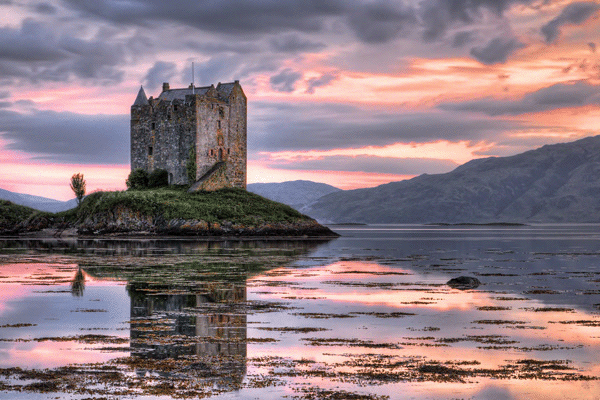Scotland Stays
September 19, 2014
Scotland will remain a part of the United Kingdom after yesterday’s referendum (vote) on Scottish independence (known as devolution in Britain). Turnout for the referendum was very large, with 85 percent of the people of Scotland voting. Experts had expected the final tally to be close, but with 55 percent of the voters casting a ballot against independence and 45 percent voting in favor, it was actually a fairly decisive victory for the “no’s.”

Scotland’s beautiful castles and landscapes will remain a part of the United Kingdom after yesterday’s referendum. (© Marcin Ciesielski/Sylwia Cisek, Shutterstock)
The United Kingdom was formed in 1707 by the Acts of Union of the Scottish parliament in 1706 and the English parliament in 1707. The nations had already shared a monarch for more than 100 years, with the ascension in 1603 of the Scottish King James VI (the English James I) to the throne of England upon the death of his cousin Elizabeth I.
Despite the acts in the 1700′s, Scotland has a long history of trying to maintain autonomy (independence) from its larger neighbor to the south. The Scottish War of Independence fought in the 1200′s by the national hero William Wallace has fired Scottish pride for centuries. (Wallace was the subject of the 1995 film Braveheart.) In the early 1300′s, Scottish king Robert Bruce spent most of his reign trying to keep Scotland free of English rule.
In the late 1800′s and 1900′s, a number of movements attempted to secure either home rule or independence for Scotland. In the 1950′s, a petition requesting Scottish independence—the Scottish Covenant—acquired 2 million signatures but was not acted upon. In the 1970′s, growing Scottish nationalism and the discovery of oil in the North Sea off Scotland’s eastern coast made the idea of Scottish devolution still more popular. In 1979, a Scottish referendum on independence narrowly won by 52 percent to 48 percent, but the vote did not count because turnout for the election had not been high enough. A second winning vote on devolution in 1997 led to the formation of Scotland’s current parliament.
Before the bid for Scottish independence had been defeated, U.K. Prime Minister David Cameron had pledged to increase the amount of autonomy enjoyed by the Scottish parliament if Scotland stayed in the Union.
Additional World Book articles:
- Scotland, History of
- United Kingdom (1976—a Back in time article)
- United Kingdom (1978—a Back in time article)
- United Kingdom (1979—a Back in time article)


